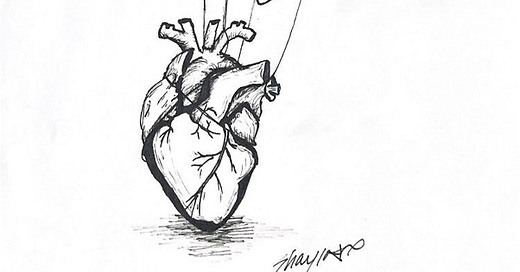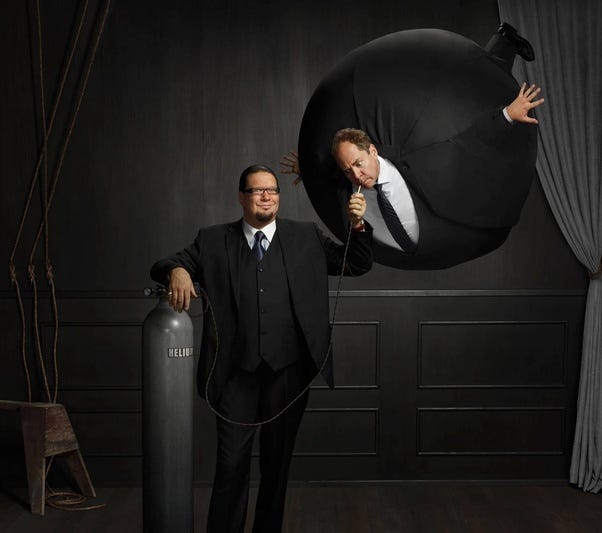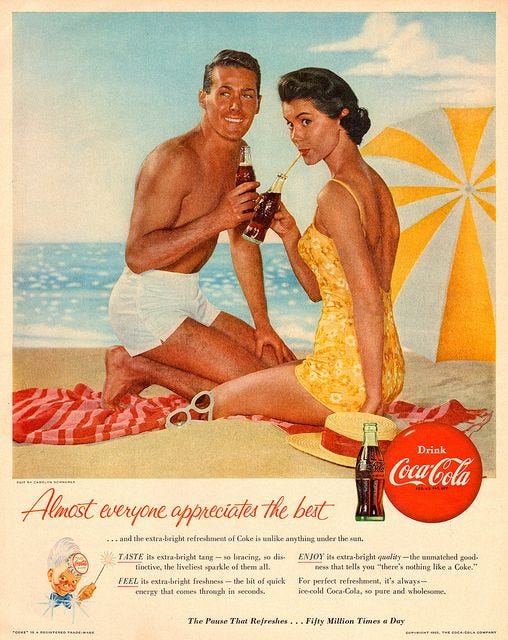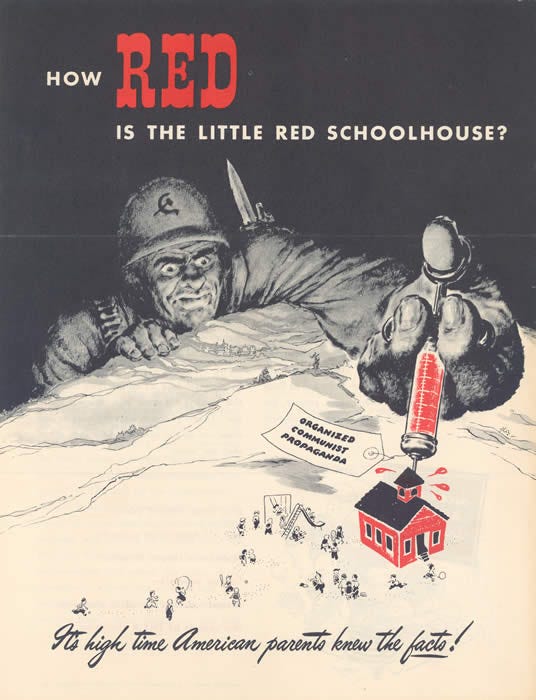The Mechanics of Manipulation
There’s a huge bias when we hear the word 'manipulation'. We see it as a pejorative. But in reality, without manipulation no progress can be achieved.
Manipulation is a necessary and integral factor in the way the human species has evolved. It’s about the need to manipulate the will of others towards an activity. Otherwise, it is very difficult to transform and develop as a society.
Think about it for a moment, each and every one of us is designed to look at the world in a unique way. Put three people to watch a car accident and you have five different versions of what happened.
Well, how do you form a unified direction when people get together in a group?? What’s the best way to create a strategy?
"Where are we going to get our food from?"
"I think we should go north because Elk herds arrive there in the spring. We will have better chances..."
"No! I think we should go south..."
How difficult it is to formulate a uniform direction.
This is where manipulation comes into play. The word 'manipulation' is composed of the Latin word 'mano', which translates to 'hand'. That is, manipulation is the hand that massages the ego.
The ego is biologically related to the heart organ which reflects the center of self-esteem and willpower. The ego is also related to memory. So, manipulation is 'the hand that massages the heart and memory'. It is the way we massage the will of others.
Exaggeration
Manipulation is the root of 'selling'. It is the basis of marketing. And all sales come with exaggeration. Every time you watch an advert; every time you get a promotional flier in your mailbox, it's a form of memory manipulation.
Think about it, there are so many things your mind can think about, and yet, you can only think about one thing at any given moment. The momentary perusal of a brochure or an advertisement on TV directs our attention to specific information, along with exaggeration; the selling of a dream: a better future, a better life, a better relationship, that “if I call the number listed on the flier that belongs to the internet company and upgrade the speed to 1 gigabyte, everything in my life will be better”.
This is how we sell things to each other, whether they are ideas, services or products. This is how we divert the attention of others by manipulating their memory.
The goal of any marketing campaign is that at least one person out of 1000 people, to whom the information was marketed, will translate the manipulation of memory (reading the advertisement) into an action. In this case, that the consumer will physically pick up the phone, dial the number and subscribe.
Censorship
So manipulation, - although we tend to see it in a negative way - is the manipulation of memory by directing one's attention to what we want them to focus on, while on the other hand, obscuring what we don't. If we want to find the root of censorship, it is here.
Censorship, as well, is about memory: which details will be omitted and which will be passed on in order to cajole the will of the person to a desired outcome. Therefore, manipulation goes hand in hand with censorship; what type of information is "allowed" and what is "prohibited" from memory.
Same goes with demagoguery. After all, demagoguery is literally half truths. Demagoguery is the process in which we express the details that serve our purpose and omit those that do not.
All of us manipulate all the time. Every time we communicate with a person we automatically omit certain details while shining others, directing them to a particular focal point. What do all of us do on a first, second and third date (while some of us do all the way to the end)? We omit details that we think do not present us in a good light and exaggerate other details that do.
This is the "sale". We sell stuff all the time. We sell ourselves to others all the time. It is always about "massaging" the memory in order to harness others to an action and/or make an impression on them.
The Stick and the Carrot
Manipulation is intertwined with fear on one hand, and pleasure and self-esteem on the other. These are the 'stick' and the 'carrot' respectively.
On the pleasure side, we massage other’s egos of others as part of the "sale". We tell them how wonderful they are and how great they will be once they follow the path we try to sell them. This is the "massage" of a person's sense of self-worth, which is naturally low. The stick, on the other hand, is where we use fear; that if they do not follow the direction presented to them, there will be consequences; "The future will be dire."
Therefore, both the carrot and the stick always come with exaggeration, otherwise it is very difficult to harness the will of others towards an activity. It is very difficult to get others out of their comfort zone; to get them to roll up their sleeves and stick their hands in the mud.
It is important to see that the sale is not for nothing. It is the driving force to achieve things. And without the dream, without someone standing on the shore of England and saying, "Let's all go to the other side because it's going to be wonderful there," no one would go.
It is not that everyone spontaneously decided to give up their lives in the old country. Someone had to pitch them. One must be pitched. At every point in our history we always find the same scenario: some leader of a group makes a pitch to the members, where there’s always a mixing of the stick and the carrot:
"We’re in danger. If we don't cross to the other side of the valley and kill the other tribe, they will rise up to kill us. But if we are early to kill them, we will be safer, we will be richer. Those among us who will die, their death will not be in vain. We will cherish and commemorate their loss for future generations."
This is the basis of how humanity has developed itself. This is the basis of how tribes competed with each other trying to become the top of the pyramid. Nothing has really changed. We are still tribes, just very sophisticated ones. Nation states are simply an extrapolation of this mechanism. Each country has a unique language, culture and values that differ from the other country on the other side of the border.
The Basis of Propaganda
Thousands of years forward in time, the mechanism is all the same. The core of the manipulation remains the same. What has changed is only the way in which the information is transmitted, becoming much more immediate.
What has changed is the medium through which the distribution and speed is made accessible to people. We have sophisticated means of transmission. We have the internet. We have smart devices. Today it is much easier to manipulate an entire nation and do it in a flash.
It is the basis of propaganda of any kind.
So one of the things that must be seen is that humanity cannot develop without "sales". All the development and progress of our civilization is based on this mechanism.
Below are some good examples of manipulations passed on as national rhetoric (propaganda) from the past and present:
"If we don't attack Iraq and Saddam Hussein, he will have weapons of mass destruction that will endanger the whole world."
"We cannot let Iran build a nuclear warhead, otherwise our lives are in danger."
"The communists are going to rule the world unless we go there (Vietnam) and kick the hell out of them."
"The Jews took all our jobs. They are responsible for the massive inflation and unemployment in our republic."
"If we don't lockdown, we will never be able to beat the pandemic."
“We must stand with Ukraine and fight this terrible war made by the evil Russian madman.”
Manipulation is also the root of heritage.
Why do you think that every so often there is an article or a news story about a country’s army, shining a positive light on it?
This is how the collective memory is kept "updated". Every so often the people need to be reminded why their country is great, and how important the activity of their army is for the security of their country.
In essence, though, we all know it's never entirely true. But this is how we maintain a uniform memory. This way everyone is kept on the same line of thought. Otherwise, if people start to deviate from the collective’s memory outline it will be very difficult to harness them into cohesion. When there’s no cohesion, any society is on the verge of collapse.
A Bargain Inherent
One of the things to understand about manipulation is that it is (usually) harmless as long as whatever is being sold bears some sort of a fruit. The fruit does not have to be exact in ratio to what’s promised. After all, we have seen that it always comes with exaggeration, but the sale must generate a sense of reward; that the willpower invested was not in vain, or alternatively, if the dream or the final product does not come true, that at least there will be some insurance.
This is the package deal.
Think of every time a nation has had to go to war. Think of the kind of "sales" involved; leaders work hard day and night to convince others to go to a place where there is a good chance they won't come home alive.
Well, how the hell do you do that?
You back this up with a support infrastructure: you assure the recipient of your salesmanship that their death will not be in vain; that the state will commemorate their deaths; you guarantee that their families will be supported financially and emotionally for years to come, and so on.
All this is necessary, otherwise, the next time you want to sell a dream and direct the will of the people to a certain goal, no one will listen. Nobody likes being taken for a ride.

In other words, manipulation is all ok as long as there is a sense of reward for the energy invested. The feeling that we got something in return for the activity and energy we invested.
When we receive the delivery of the goods, as a reward for our investment, we feel good about it and forget about the risk; the inconvenience and the sacrifice we had to endure. It doesn't matter so much how clever the salesman was in manipulating us, as long as the product or service works according to the promised specifications that exist in the outline, all is ok
Alternatively, if the experience is tainted with the feeling that we didn't get the equivalent of our effort, as part of the deal, it will be etched in our memory forever. It's always about memory.
This is the abusive side of the manipulation that we have come to know so well in our lives: the shrewd salesman, the con man, the Ponzi scheme and so on. This is the side where manipulation has negative consequences, because the reward does not match the salesmanship; the initial promise.
This is where the representatives of society enter the picture. Those whose society selects as the most qualified to be its salesmen and saleswomen. We call them 'politicians'. Those are the people chosen to best sell dreams to the people on a daily basis, for a better future.
The problem is that over the years human beings have become addicted to fantasies that are not grounded in reality. Therefore, they only choose abusive manipulators because only liars can deliver.
Once you understand the mechanism you can see how it describes almost every politician and leader you've ever heard of. Their expertise is measured by how well they’ve honed the art of manipulation. And they are busy improving this ability all the time. You can never get a straight answer from them. When one promises all the time, but rarely if ever, delivers, as long as they can jump to the next (new) promise, accountability can always be escaped from. Everything is fine.
These people who sit at the head of organizations and countries, who never give you a straight answer, are part of the way humanity is manipulated on a daily basis. It also reveals something quite interesting: that humanity doesn't need the truth to evolve.
Conclusion:
Manipulation can never be dissolved, because as this essay shows, it’s part of our biology. All of us do it all the time, even when we think we don’t. We omit details, and alternatively, expose other details to direct others in a certain direction. We massage the memory of others all the time.
When one begins to understand this interesting mechanism, it is much easier to look at manipulation impartially, but also know how to distinguish when it becomes harmful.
In other words, I have no problem with someone trying to manipulate me. I understand the mechanism. But I judge their “massage” solely by whether the conditions used in the sale are going to be met. If they’re going to deliver the goods, or alternatively, when things go awry, if they’re going to fulfill the “insurance policy” as a commitment to support.
I am a great proponent for self responsibility and inner authority. Meaning, that each individual is a captain of their own ship and that their choices and decisions are their business.
So for instance, when it came to the mRNA vaccines, even though they were totally not to my liking, I never told anyone whether to take them or not. But what I did caution people was to make sure that they study the bargain that was being sold to them. To make sure they see that if things do not go as planned, that the bargain inherent in the salesmanship will be fulfilled.
Two years after the rolling out of the vaccines, it is clear that governments around the world have not been fulfilling their side of the bargain. They are not supporting those who got the lower hand of the deal; those who have become ill and/or have died as a result.
This is a good example to show that in whatever subject you’re going to take a look at, the promises all remain the same, but it’s the commitment to support them that is no longer there. This, in turn, causes so many to fall in between the cracks.
It’s inherent in every form of “selling” nowadays. Even in relatively mundane things such as buying a car, an insurance policy, a vacation, a house, whatever the case may be, people realize all to late that they were sold a cat in a sack.
So if there is anything to take from this piece is the understanding that the theme of the commitment to the bargain is no longer there in humanity. It is shutting down. Therefore, one has to be vigilant to examine every form of manipulation closely.











